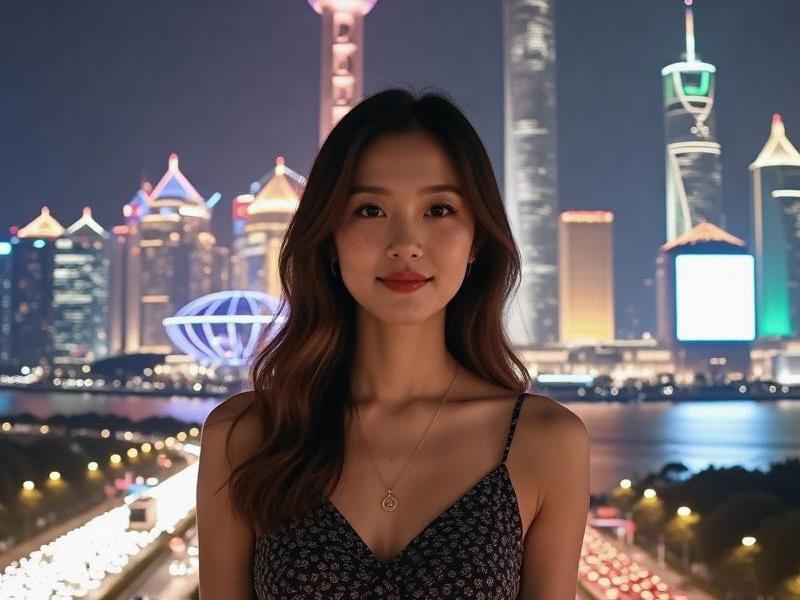Shanghai's Nightlife Evolution: How Entertainment Venues Are Redefining Urban Leisure
⏱ 2025-06-09 00:48 🔖 阿拉爱上海
📢0℃

The neon lights of Shanghai's entertainment districts tell a story of cultural fusion and economic transformation. Along the Huangpu River, where jazz clubs once dominated the 1930s nightlife scene, a new generation of entertainment venues is redefining urban leisure for the 21st century.
Shanghai's entertainment industry has grown exponentially since 2010, with the city now boasting over 5,000 licensed entertainment establishments ranging from high-end karaoke lounges to immersive theater restaurants. The sector contributes approximately ¥87 billion annually to Shanghai's economy and employs nearly 200,000 workers, according to municipal commerce bureau statistics.
The evolution reflects changing consumer demands. "Today's patrons want more than just drinks and music," explains James Liang, owner of Cloud Nine, a multi-concept venue in Jing'an District. "We combine craft cocktails with live painting performances, while our VIP rooms offer AR-enhanced karaoke with real-time lyric translation in 12 languages."
上海龙凤sh419
Cultural preservation plays a surprising role in this modernization. Several historic ballrooms from the 1920s have been meticulously restored as upscale entertainment complexes. The Paramount, once Asia's grandest dance hall, now operates as a seven-story leisure destination featuring a rooftop jazz bar, virtual reality gaming floors, and traditional tea ceremony rooms.
Government policies actively shape this development. Shanghai's "Night Economy 3.0" initiative provides subsidies for venues that incorporate cultural elements and extend operating hours. The program has spurred innovations like the Xintiandi Book Jazz Club, where patrons enjoy live music surrounded by rare book collections, and the Power Station of Art's nighttime gallery parties.
上海花千坊龙凤
Technology integration reaches new heights at venues like Digital Dragon in Pudong. This entertainment complex uses facial recognition for VIP access, AI bartenders that learn drink preferences, and holographic performers that alternate between Peking opera and EDM sets. "We're creating the entertainment model of the future," says CEO Zhang Wei.
The business entertainment sector shows particular growth. High-end clubs like The Bund's Celestial cater to corporate clients with soundproof meeting rooms that convert into private karaoke lounges, blending work and leisure seamlessly. "About 60% of our revenue comes from business-related gatherings," notes manager Olivia Chen.
上海龙凤419
Challenges persist, including strict noise ordinances and competition from home entertainment options. However, industry leaders remain optimistic. As Shanghai Tourism Bureau director Huang Ming states: "Entertainment venues have become crucial to our city's identity as a global destination that honors its past while innovating for the future."
From the jazz-age glamour of Peace Hotel's老年爵士酒吧 (Old Jazz Bar) to the cyberpunk aesthetics of Tomorrow Club in Hongkou, Shanghai's entertainment scene continues its century-old tradition of cultural synthesis - now with smarter technology and broader appeal than ever before.
Shanghai's Beauty: A Blend of Tradition and ModernityQuantum Bund: Shanghai's Chrono-Urban Matrix Rewriting Civilization's Source Code"The Yangtze Delta Experiment: How Shanghai and Its Satellite Cities Are Rewriting Urbanization Rules"The Evolution of Shanghai's Nightlife: How Entertainment Venues Are Redefining Urban LeisureShanghai's Nightlife Revolution: How Entertainment Clubs Are Shaping Urban Culture in 2025Neon Cheongsams: How Shanghai's Women Are Rewriting the Rules of Asian FemininityShanghai Beauties: A Journey Through the City's Elegant CharmShanghai and Its Surrounding Areas Sightseeing GuideShanghai and Its Satellite Cities: The Making of a 21st Century MegalopolisShanghai Entertainment Hotspots: A Vibrant Melting Pot of Culture and Fun
Shanghai 2025: The Radiant Core of the Yangtze River Delta MegaregionShanghai Glamour: How the City's Women Are Defining 21st Century Chinese FemininityNeon Dynasty: How Shanghai's Entertainment Clubs Are Redefining Global Nightlife Standards in 2025Midnight in Shanghai: How China's Glittering Metropolis Redefines Nightlife LuxuryShanghai's Sphere of Influence: How the Megacity is Reshaping Eastern ChinaThe Yangtze Delta Megaregion: How Shanghai and Its Neighbors Are Redefining Urban EconomicsThe Velvet Rope Economy: Inside Shanghai's Exclusive Entertainment Club SceneGilded Playgrounds: How Shanghai's Elite Entertainment Clubs Are Redefining Urban NightlifeThe Shanghai Nexus: How China's Financial Capital is Reshaping the Yangtze River Delta MegaregionShanghai 2025: The Silicon Valley of the East Reinvents Urban Living

